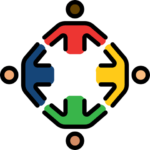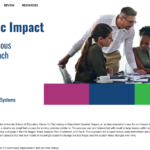Better data is critical to improving the early childhood ecosystem. This resource is meant to help states understand the return on investment of improving their early childhood data capacity, provide guidance about how to make the improvements they need, and support them in laying a strong foundation for connecting robust early childhood data with statewide longitudinal data systems.
Tag Archives: Early Childhood Systems Building
Babies, Toddlers, Families, Part C, Oh My!

NE-PACT. October 2023. This presentation covers Part C IDEA regulations, Part C Systems and Services, the comprehensive early childhood system, and how we can be sure it is equitable.
OSEP Part B 619 Child Find Self-Assessment (CFSA)
OSEP, with the collaboration and support of ECTA Center and DaSy Center (for Sections II and III), developed this voluntary self-assessment tool to help Local Education Agencies (LEAs) strengthen their child find system with the goal of ensuring children eligible for special education and related services are referred and enrolled.
DaSy Dynamic Impact

Improving programs and changing systems can be hard, DaSy Dynamic Impact is an easy-to-use approach that provides a consistent, successful, and sustainable process to support your team.
Leadership: Purpose with Passion

Join a panel of state leaders who will share their roles in the development and pilot of the Part C and Part B/619 Leadership Initiative sponsored by the Early Childhood Personnel Center (ECPC). Strengthening the knowledge and skills of the Part C and Part B 619 coordinators leads to enhanced effectiveness and retention of these critical state system leaders.
Using the Preschool Development Grants (PDG) to Build Inclusive Systems

The Preschool Development Grants (PDG) present an opportunity for states to build more coordinated, inclusive state systems to better address the needs of all young children and their families including those with disabilities. Come learn about how Part C and Part B 619 state agencies are contributing to the PDG efforts in their states. This session also will provide opportunities to share and hear state plans, accomplishments, and challenges in using PDG to support improved services and outcomes for children with disabilities.
Essential Participation of Family Leaders and Shared Leadership in Part C and 619 Programs

Calling all Part C and 619 Family Leaders! It takes teamwork to build effective state and local systems for young children with disabilities. You are an essential member of those teams, working in partnership with the other players.
What You Need to Know: Part C IDEA Data Reporting and Monitoring Updates

Part C Coordinators are invited to join OSEP staff to hear updates related to the Part C SPP/APR, including the SSIP, as well as the launch of Differentiated Monitoring and Support (DMS) 2.0. OSEP will share information related to the FFY 2019 and FFY 2020 SPP/APR submissions will provide a general overview of OSEP’s vision to incorporate State system improvement efforts into DMS.

